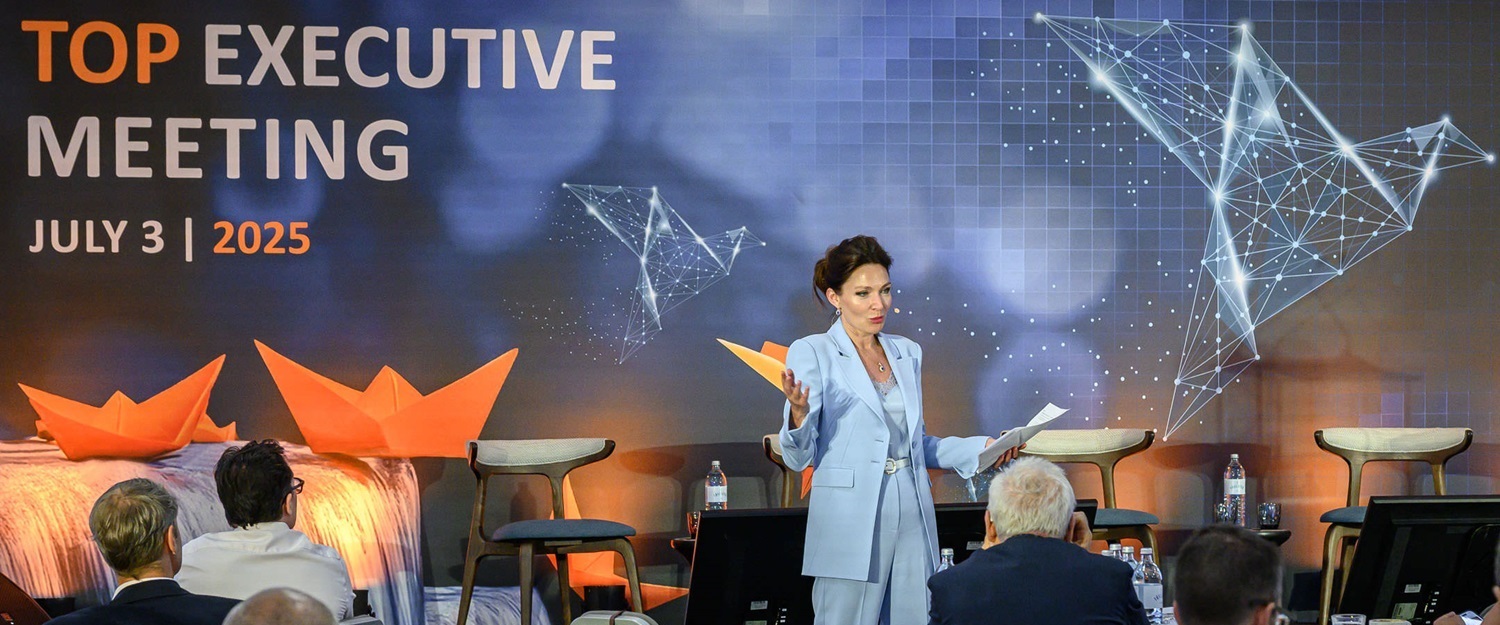In today's business world, managers face a wide range of risks—from new technologies to shifting market dynamics. The risk landscape is evolving at an unprecedented pace, calling for innovative approaches and fresh thinking. This was the focus of CRIF's Top Executive Meeting, where industry leaders and risk management experts gathered to explore solutions to these new challenges.
The event featured a comprehensive program of keynote speeches and panel discussions. Carlo Gherardi, Chairman and CEO of CRIF, opened the meeting. Daria Krivonos, CEO of the Copenhagen Institute for Futures Studies, delivered the opening keynote on "Geoeconomics: Key Developments and Perspectives – Impacts, Risks, and Opportunities for Businesses."
The first panel discussion, moderated by Enrico Lodi, CRIF General Manager, explored "Best Practices in AI Transformation: Use Cases and Ethical Considerations," with contributions from Thomas Krogh Jensen, CEO of Copenhagen Fintech, Arie Wilder, COO of Auxmoney, and Davide Raitano, GT Managing Director at CRIF.
- Home
- News & Resources
- News & Events



